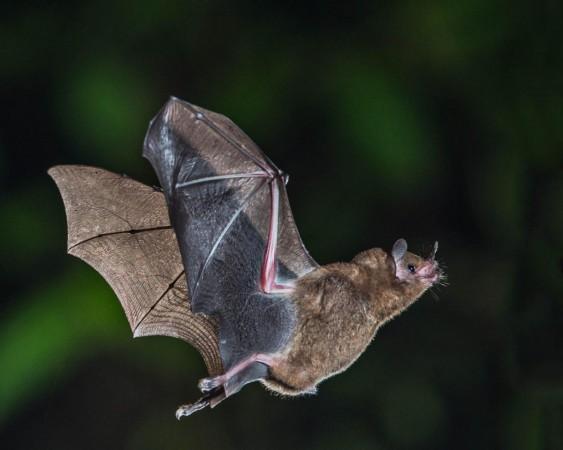Its common knowledge that for bats, echolocation is critical for survival. From navigation to hunting, the winged rodents utilize the mechanism to persevere in the wild. Therefore, unlike humans and other mammals, they must be immune to age-related hearing loss, right? They are not, say scientists.
Through a new multi-institutional study, researchers have discovered that Egyptian fruit bats (Rousettus aegyptiacus) experience loss of hearing as they age. However, they also suggest that these bats may have developed an innate ability to restrict the extent of age-associated decline in hearing. According to the authors, the research can provide new insights into age-led loss of auditory perception in humans.
"While high-frequency hearing confers a survival benefit for many animals, it is essential for the survival of echolocating bats, which rely on it for orienting in their environment. However, to date, no study has systematically examined the effect of age on hearing in bats," said Dr. Yossi Yovel, corresponding author of the study, in a statement. The findings were published in the journal Life Science Alliance.
Age Catches Up to All... Even Bats

For the study, the team ascertained the ages of 47 wild Egyptian fruit bats by analysing the accumulation of chemical markers in their DNA. Following this, they evaluated the bats' hearing abilities by recording the electrical responses of their brains to sounds of different volumes and pitches.
These observations revealed that bats experience age-related hearing impairment, much like human beings–it was specifically notable at higher frequencies of sound. Also, the rate of hearing loss in the studied bats was comparable to that observed in ageing humans: ~1 dB/year of age.
Upon further investigation, the authors learnt that the structure and function of the cochlea–part of the inner ear involved in hearing–in bats underwent age-related decline, akin to humans. In addition to this, neuronal presbycusis, a decrease in the speed of auditory nerve processing, was also observed in bats. In humans, neuronal presbycusis can lead to the impairment of understanding speech, while in aged bats, it could render echolocation difficult.
Keeping Loss of Hearing In Check

The scientists posit that one of the potential contributors to hearing loss in fruit bats is their collective exposure to high levels of noise in their environment. Similar to other species of bats, Egyptian fruit bats live in large colonies where individuals let out loud social calls frequently to communicate with each other.
To record the noise levels within Egyptian fruit bats colonies, the team placed several microphones inside the cave where the studied animals lived. It was found that the aerial mammals were exposed to over 100 dB of noise constantly–an approximate equivalent to the noise of a chainsaw or motorcycle. Interestingly, the loudest sounds were at lower frequencies where the bats showed negligible or no hearing decline in old age.

"When taken together, the very high levels of noise that fruit bats are exposed to and the mild (similar to human) levels of age-related hearing loss suggest that bats might have some special adaptations to cope with their very noisy environments," averred Dr. Yovel.
While the current research offers a novel understanding of hearing loss in bats, Yifat Tarnovsky, lead author of the study, noted that fruit bats relied on both echolocation (for numerous functions) as well as their vision–to a great degree–wherever possible. She concluded: "It will therefore be important to replicate our tests in bats with poor vision, where echolocation is nearly the only mechanism of orientation."

















